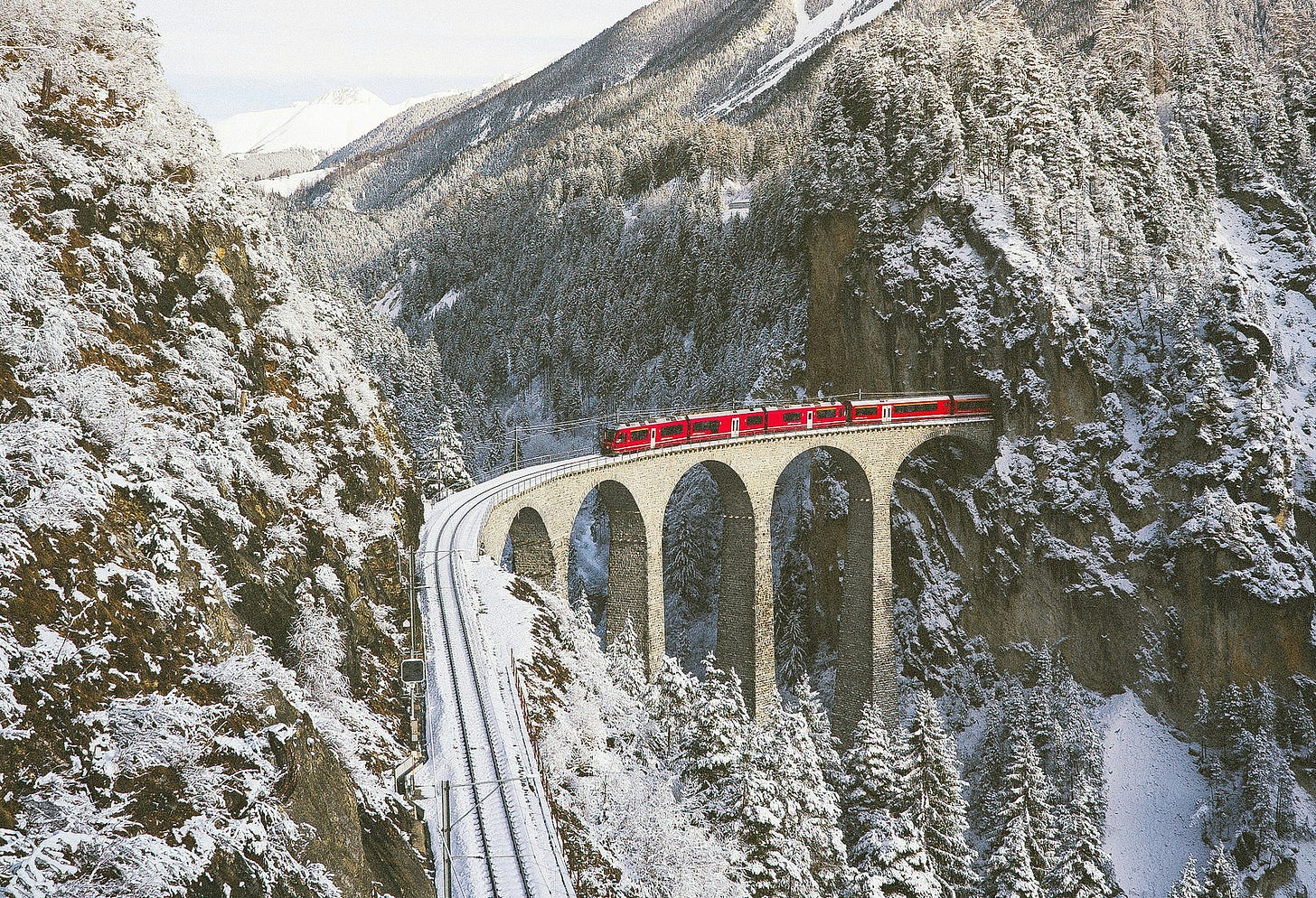
Life is like catching a train.
Sometimes you’re on the right one; sometimes you’re on the wrong.
Sometimes you’re moving forward; sometimes you have to stop.
Sometimes you have to get off and change to another.
Sometimes you have to wait at the station much longer than you’d like.
Sometimes you have to pay; sometimes you just get on and risk it.
Sometimes many trains come and go, none of which are right, and you’ll have to wait there patiently and let them pass — which is hard when it’s getting dark and cold and there’s no sign to tell you when the right one’s going to come.
Sometimes you have to take the one that’s almost right — one that’s generally heading in the right direction but has stops or changes along the way — and get off one bad train and on to a worse, or spend time at some strange stations.
Sometimes you just have to take what seems like the wrong one.
Sometimes you have no choice.
Sometimes any train is better than none.
We don’t get to choose which station we start from. And not all destinations are the same.
But we all have to end our journey at some point, no matter which trains we took to get there.
Sometimes the journey is set out for you.
Sometimes you have to figure it out for yourself.
The almost-right-train journey is perhaps the most common; very few people get the express.
The wrong-train journey is all too common. And some people aren’t even aware they’re on it.
Some spend every train ride frustrated that they have to be on a train to get anywhere.
Some make the most of the journey.
Some try to stay on one train long past their destination and turn the right train into the wrong one.
Some spend their entire lives waiting on the platform, trying to figure out exactly where each train will take them, or waiting for the perfect one.
And some watch train after train go by until the line stops entirely.
Some take the same little train their entire lives and never take the risk of trying a better one, or never even bother to see if a better one exists.
Many only ever take the main lines, perhaps the ones their parents or their culture tells them are the safe ones, whether or not it’s the right one for them.
And no one else will stop to ask us whether we’re on the right train or not — they’ll just assume we know what we’re doing.
And in fairness, it’s not their job; they have their own trains to catch.
That’s the hidden role of ticket inspectors.
Like brutally honest friends or those rare strangers who see through us, we both hate that they exist and are thankful that they’re there;
They remind us that every train has a cost, and they make sure everyone else is paying their part.
But if we’re brave enough to ask, they can also tell us if we’re on the wrong train, and maybe help us find the right one.
If you like my writing and want to help me write more, you can buy me a coffee, subscribe, or hire me via Upwork




